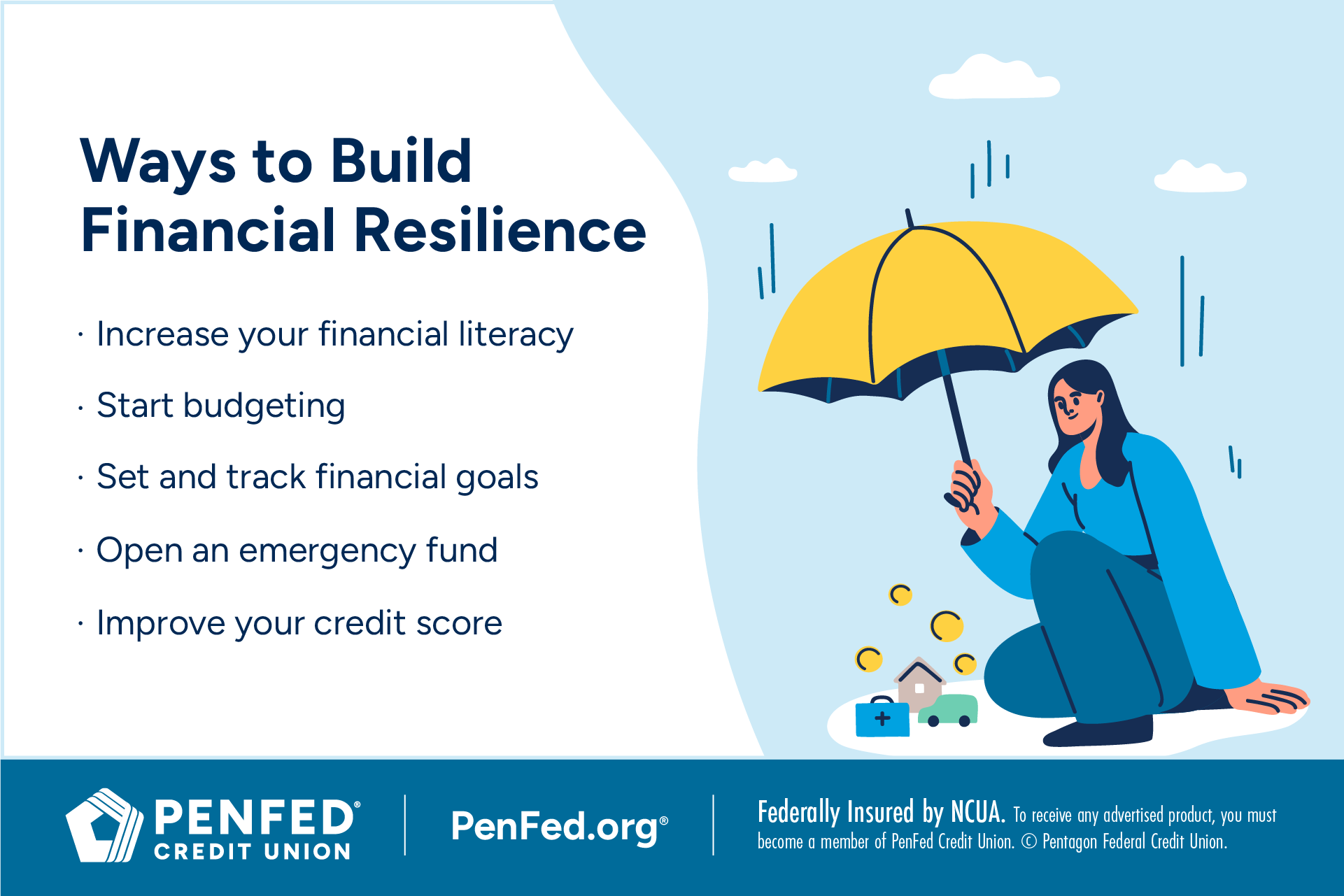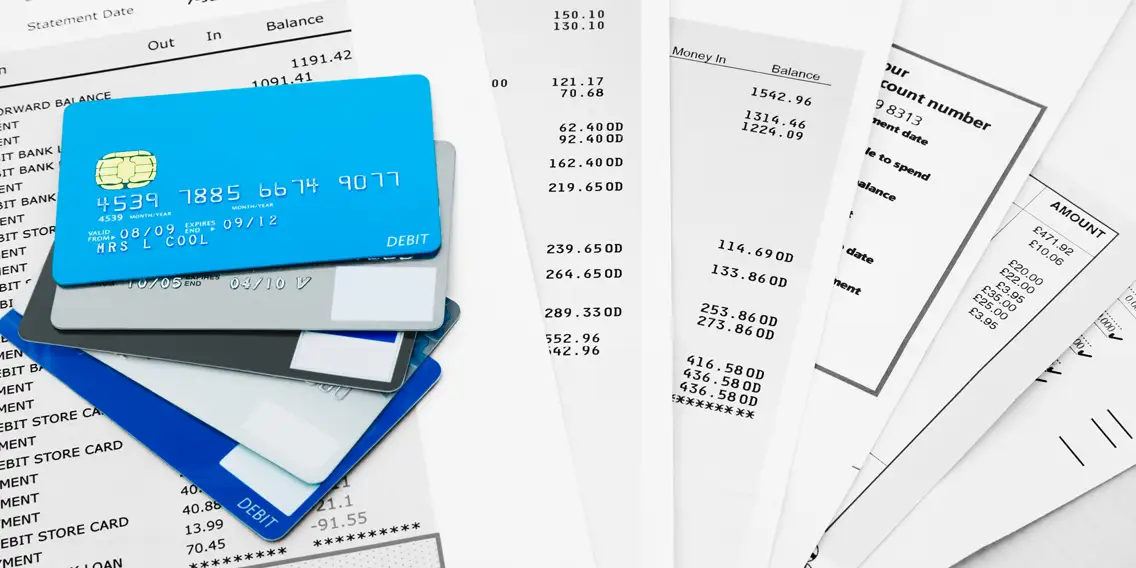Finance
Overcoming Financial Trauma: Tips & Strategies
What you'll learn:How to cope with financial trauma
EXPECTED READ TIME: 8 MINUTES
Everyone struggles with financial stress sometimes. Whether it’s missing a payment during a super busy month or feeling cash-strapped around the holidays, sometimes we just have more financial pressure in our lives.
But if you grew up with very little to go around, or maybe an unforeseen event has ruined your finances, balancing your budget — or even the word “budget” — might send you into a cold sweat. You might have trouble staying consistent with good money habits or finding helpful resources, and you might be experiencing some very real daily health issues as a result of the stress.
Honestly, we’ve been there, too. Our guide won’t solve all your problems, but we hope you’ll at least find some validation and some tips for working through the effects of financial trauma so you can work toward recovery and prosperity.

Understanding Financial Trauma
Financial trauma is a collection of mental, emotional, and even physiological responses related to financial hardship or crisis. These responses can include anxiety, sleep disturbances, difficulty concentrating, and feelings of guilt or shame. Often financial trauma stems from past negative experiences such as job loss or bankruptcy.
While we all experience financial stress from time to time, people with financial trauma experience that stress in deeper, more impactful ways. The degree of stress they experience around finances reaches unhealthy levels that alter their relationship to money and ability to make sound financial decisions.
Recognizing financial trauma in your own life can be an important part of taking control of your personal finances. Once you recognize ways financial trauma may be influencing your decisions, you can take steps to recover and start building the life you want for yourself.
While we all experience financial stress from time to time, people with financial trauma experience that stress in deeper, more impactful ways.
Causes of Financial Trauma
Financial trauma can be caused by a variety of factors. Many of these factors may be beyond your control, which can make you feel powerless. However, understanding how they influence your finances can prime you to make better choices that lessen their impact.
Major Life Events
Events like job loss, serious illness, divorce, or death of a spouse can significantly impact your financial well-being. In these situations, feelings like anxiety, grief, or sadness are often compounded by loss of income, legal fees, medical bills, and other financial pressures that can feel overwhelming.
Economic Instability
Economic dips can result in job losses, reduced income, and sudden increases in cost of living. In turn, people may take on more debt, often at higher interest rates, to cope with mounting bills. Economic downturns that become recessions can set people back years financially.
Factors like rising cost of living, limited job opportunities, stagnant wages, and increasing healthcare costs can contribute to financial trauma. These factors can last for years, creating long-term financial pressure.
Social Factors
Some populations are more vulnerable to financial trauma than others. People who grow up in families struggling with poverty are more likely to experience financial trauma as adults. Similarly, people who come from families with low levels of financial literacy are also more likely to struggle when facing financial hardships, and in turn they’re more likely to experience trauma from those struggles.
Improving your financial literacy is the most effective way to combat financial trauma, and thankfully it is a learned skill that anyone can improve.
Importantly, your background does not have to dictate your future. And just because you have experienced financial trauma, that doesn’t mean you can’t cultivate a healthier relationship with your finances. Improving your financial literacy is the most effective way to combat financial trauma, and thankfully it is a learned skill that anyone can build upon.
Recognizing Signs of Financial Trauma
Financial trauma can impact many areas of your life, including but not limited to your relationship with money. Let’s look at some of the ways financial trauma can affect how you function:
Avoidance and Procrastination
People tend to avoid things that make them anxious, and financial management is no exception. If you experience distress when making financial decisions, you may find yourself avoiding or procrastinating when it comes to:
- Putting off bill pay
- Not planning or keeping a budget
- Refusing to discuss important financial matters
- Avoiding important financial decisions
- Delaying necessary purchases
- Making decisions rashly without thinking them through
People tend to avoid things that make them anxious, and financial management is no exception.
Underspending
If you don’t feel confident tracking your finances, you may find it stressful to spend money. Even if you have enough money in your checking account, you may constantly worry about overdrawing your account or coming up short at the end of the month. This can lead to situations where you don’t spend when you can afford to, especially when it might benefit you.
Underspending can lead to situations where you don’t spend when you can afford to, especially when it might benefit you.
Reckless Spending
Overspending is another symptom of financial trauma. You may engage in “retail therapy” when feeling down, or you may make big purchases you can’t comfortably afford. According to the Cleveland Clinic, spending money can restore our sense of control, distract from our anxiety, and even release dopamine to lift our mood — but chronic spending beyond our means can exacerbate a cycle of financial stress.
On the flip side, if you find spending money stressful, then it makes sense that you might spend fast to get a purchase over with. You may avoid reflecting on the pros and cons of your purchase or calculating the cost of, for example, charging another expense to your credit card.
Chronic spending beyond our means can exacerbate a cycle of financial stress.
Risk Aversion
It’s understandable that your confidence and decision-making skills aren’t all there when you’ve taken a hit (or two or three) in life. So it makes sense that if you’re struggling with financial trauma you may go to great lengths to avoid situations you feel could lead to bad financial outcomes.
While risk management is an important part of personal finance, being risk avoidant can have a negative impact on your finances. Some financial risks can be worthwhile, such as taking out student loans or investing in some equipment you need to grow a business.
Being risk averse might even cost you more long term. For instance, at a certain point maintenance and repair costs on that used car you bought to save money could end up being more expensive than buying a newer car in better shape. Being too risk averse may feel protective, but in reality it can be costly.
Maintenance and repair costs on that used car you bought to save money could end up being more expensive than buying a newer car in better shape.
Helplessness
Financial trauma can make you feel helpless to change your situation, especially if you’ve been stuck in a cycle of progress and backsliding. You may find yourself relying on your partner, adult children, well-meaning friends, or even social media “experts” to make decisions about money.
The truth is there’s no easy or instant way out of financial difficulties. However, learning more about personal finance, adopting new habits, and giving yourself grace for missteps will go a long way toward liberating you from financial trauma.
Giving yourself grace for missteps will go a long way toward liberating you from financial trauma.
Coping Strategies for Financial Trauma
Your own financial trauma stems from the unique circumstances you’ve experienced, but most people can start healing using some of the same simple steps:
- Seek help. Consider working with a therapist to address feelings of anxiety, helplessness, and low self-worth. If you have rebuilt to the point that you can afford one, you may also want to work with a financial advisor to create a plan for your money that you can feel confident about.
- Change your mindset. Stop harmful self-talk and address feelings of shame. Remember that your worth is not tied to your salary, bank balance, or job title. Adopt a growth mindset around financial literacy. Remember that whatever left you high and dry does not have to define you. Your reaction in the fallout will determine the long-term impact of this setback.
- Identify triggers and find coping strategies. Do you binge shop after a stressful day at work? Do your thoughts spiral most at bedtime? Pay attention to these patterns and find healthy ways to redirect yourself, such as exercise, meditation, or other soothing activities.
- Write down your financial plan. Establish goals related to your biggest challenges. For example, if you lost your job in the past and worry about losing it again, start building an emergency fund. If you worry about falling behind on bills, find a budgeting strategy and set aside time each weekly to monitor your progress.
- Ask for support from trusted family and friends or look for support groups in your community. You may be surprised to find other people you know are fighting similar battles. This can help counter any negative, blaming self-talk you’ve been engaging in, and your community may have helpful advice.
- Start with one thing. This list is long, and some of this stuff is hard. If you’re feeling overwhelmed already, choose just one thing and do it. Get started. Tackle another thing tomorrow, then another. Rome wasn’t built in a day, and overcoming financial trauma doesn’t happen that fast either.
This list is long and some of this stuff is hard. If you’re feeling overwhelmed already, choose just one thing and do it.
Promoting Financial Resilience
Financial resilience refers to a person’s ability to weather financial challenges they face. Part of financial resilience is about your mindset — believing in yourself and your abilities. The other part of financial resilience is actively managing your money in ways that help you flourish in good times and ride out bad times. Here are some ways you can start improving your own financial resilience:
Increase Your Financial Literacy
Higher levels of financial literacy are correlated with less anxiety around money, less bad debt, more savings, and greater financial stability. Learning about our economy and the basics of personal finance is an important way to improve your financial wellness. You can find great resources to build financial literacy through:
- Banks or credit unions
- Local community colleges or high schools
- Public libraries
- Financial news sources
- Government resources like MyMoney.gov and the Consumer Financial Protection Bureau
- Financial Counseling Association of America
- Blogs and podcasts (just be sure they’re written by experts)
You can build your confidence — and improve your finances — by setting goals and tracking your progress toward them.
Start Budgeting
Budgeting isn’t just writing down how you think you spend your money. It’s about actively reviewing where your money comes from and where it goes so you can improve your spending habits.
If you don’t have a budget, you can create one in six steps. But that’s only part of budgeting — the other part is finding a way to stick to your budget. If you’ve struggled with sticking to a budget in the past, consider:
- Using a check register to manually record your expenditures
- Using a budgeting app
- Using the envelope method
Set and Track Financial Goals
Confidence is a big part of financial trauma. You can build your confidence — and improve your finances — by setting goals and tracking your progress toward them.
Savings goals are a great way to start. Having savings will improve your cash flow, grow your wealth, and help you afford wants as well as needs. You can automate your savings so you don’t even have to think about it. Start small, monitor your progress regularly, and celebrate your wins.
You can also set goals for paying off debt. Choose a debt payoff strategy, or consolidate your debt into one simple payment. Then track your progress toward financial freedom.
Start small, monitor your progress regularly, and celebrate your wins.
Open an Emergency Fund
An emergency fund is savings set aside for emergencies like job loss, hospitalization, or other costly, essential expenses you can’t foresee. It’s a powerful tool for avoiding debt you weren’t planning for.
You can open an emergency fund in a traditional savings account or high-yield savings account, but it needs to be separate from your other savings. Use your regular savings to pay for wants and small needs and keep your emergency fund for absolute necessities.
Eventually, you’ll want enough saved to cover your essential expenses for 3 to 6 months, but you can start small by saving a little each pay period and increase your savings as you can afford to.
Improve Your Credit Score
Credit scores can be scary, and because they determine whether we’re approved for credit, it can be tempting to tie them to our value as a person. The truth is, part of having a good credit score comes down to understanding how credit scoring works.
Credit scores are based on five categories of data. If you understand what those categories mean, you can make calculated decisions about how you use your credit and you’ll see improvements in your score.
Monitoring your credit situation is important, as well. It can help you find and correct errors, detect identity fraud, and find simple ways to improve your credit score, such as reporting utilities and phone payments.
The Takeaway
Recovering from financial trauma is a process. While it might take time and practice, you can cultivate a healthier relationship with money, one that will help you achieve the life you want to live.
Choose Checking that Puts You in Control
Discover the diverse offering of products, services, and support available to our members.




